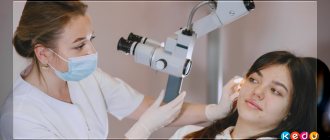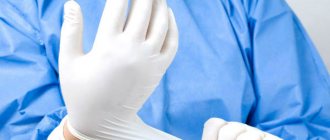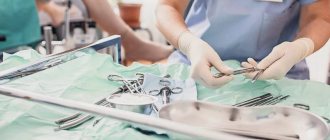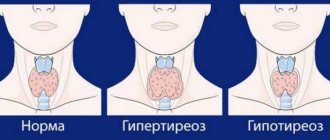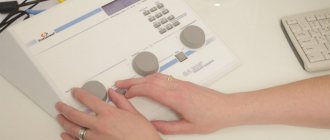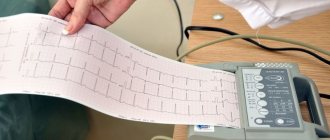A doctor who treats diseases of the rectum in women and men is a proctologist (or coloproctologist). People turn to him to identify and remove hemorrhoids, anal fimbria, polyps, condylomas, as well as to diagnose and treat anal fissures.
The intimate nature of proctological problems gives rise to a lot of fears and questions about proctologists. The mission of the online reference portal Alanclinic.Ru is to help readers understand: answer their questions, dispel doubts and tell in simple language what a proctologist does, for what symptoms you need to make an appointment and where to find an experienced doctor who you can trust with your health.
What kind of doctor is this
Most specialists in this area begin their careers working as hospital surgeons - they perform abdominal and endoscopic operations on various organs of the abdominal cavity and perianal region. And the longer they improve in the surgery department, the better. After all, the work of a coloproctologist is akin to the art of jewelry.
To become a proctologist, you must first train as a surgeon. Then, choose a narrow specialization (proctology) and receive additional education in it. Then years of practice in inpatient hospitals - operations, dressings, rehabilitation measures...
Having gone through this entire long period of formation, the surgeon acquires the most complete understanding of the processes that occur in the internal organs of a person. In the future, he will be able to use the acquired practical knowledge to predict the possible consequences of treating hemorrhoids and other proctological diseases.
Is it possible to eat before visiting a proctologist?
A proctological examination involves examining the lower parts of the large intestine, so visiting a doctor requires some preparation. First of all, the patient needs to go on a special diet 2-3 days before the visit to the medical center.
It is recommended to exclude from the diet all foods and drinks that increase gas formation. These include:
- black bread and bran;
- legumes;
- unprocessed vegetables and fruits;
- carbonated drinks.
You should also reduce the consumption of dairy products and confectionery products. The permitted group includes lean red meat, poultry, white fish, light cereals, and vegetable side dishes.
You can eat on the day of the examination, but it is better to reduce portions and avoid a heavy breakfast or lunch. This will help reduce discomfort during the procedure.
How and where to apply: paid and free
Where can I find a proctologist? Who receives patients in free clinics at their place of residence under the compulsory medical insurance policy if there is no proctologist? Do I need to go to the hospital for hemorrhoids? What is the difference between a paid examination by a proctologist and a free one?
Many people faced with proctological symptoms ask similar questions. We will try to answer them.
Doctors who have the right to examine and treat proctological diseases work:
- in clinics at the place of residence;
- in hospitals - city, regional or republican;
- in paid medical centers.
Let's look at the features of each option.
Polyclinic at your place of residence (compulsory medical insurance)
In most clinics, the duties of a coloproctologist are performed by a surgeon. For diagnosis, a digital examination is performed. To relieve you of suffering, the surgeon can only prescribe ointments, rectal suppositories and oral medications.
This helps temporarily relieve itching, pain and stop bleeding. But it does not cure the disease. And, unfortunately, in such conditions it is often impossible to establish an accurate diagnosis.
Therefore, if pharmacotherapy does not help, and the symptoms return, the surgeon can give a referral to the inpatient department of the hospital to which this clinic belongs.
Coloproctology department of the hospital
You can get here in two ways - by referral from a surgeon at your place of residence or by ambulance. Proctologist services can be obtained here both for a fee and for free. This depends on many factors, primarily on internal rules for providing assistance to the population.
For example, it may matter whether you live in the same city or are a newcomer. Do you belong to the categories of patients who have the right to receive medical services under a quota? At the time of your application, is it possible to accept you under a quota? If not, they will put you on a waiting list or offer you treatment for a fee. If the patient is in critical condition and is brought by ambulance, he will be provided with emergency care.
In general, if you decide to see a proctologist in a hospital hospital, you can find out the details on their official website, on directory websites, or at the clinic at your place of residence. We recommend that you thoroughly find out what the application procedure is, what documents need to be collected, what tests need to be taken, and what form to take for a medical examination. When visiting a hospital, a huge number of similar nuances and questions may arise, the complete answers to which, perhaps, only the staff of these hospitals can give.
Paid medical centers, specialized private clinics
Getting into a paid clinic is usually the easiest way. Just call or leave a request on the clinic’s website.
Over the phone, you will be asked a few simple questions to make sure that you really need to be examined by a proctologist.
The following will explain in detail:
- how to prepare for the appointment and examination;
- what is included in the initial consultation;
- how the diagnosis is carried out - on what equipment, in what position, how many minutes it lasts, what the doctor does, etc.;
- what doctors work in the clinic - their work experience, achievements, regalia.
Then they will offer a day and time when you can come for an appointment and get examined. If the clinic is serious, then appointments are carried out only by appointment - so as not to force patients to wait in the corridor, but to come on the appointed day and time and immediately get in for a consultation.
Paid or free: is there a difference?
PAID
- There are many proctologists in the clinic. Therefore, reception is carried out daily in two shifts, seven days a week. Patients are treated by doctors who specialize in proctology and have many years of practical experience in performing surgical operations in hospital settings.
- Comprehensive examination using hardware methods. Accurate diagnosis on the day of treatment.
- Non-surgical hardware treatment methods. Bloodless surgery: laser, ultrasound or radio wave.
- All necessary tests can be taken directly in the same clinic. There is no need to collect documents or undergo a medical examination.
- All without queues.
- Complete treatment in 1-2-3 procedures. No hospitalization. Fast healing after therapy. Virtually no restrictions. You can go to work even on the day of the procedure.
FOR FREE
- Difficult to get in. There are few doctors. The result is an inconvenient work schedule.
- Inspection and finger examination only. Establishing an accurate diagnosis on an outpatient basis is not always possible due to the lack of special equipment in clinics.
- Prescribing ointments and tablets for temporary relief. If it doesn’t help, a referral to a hospital for surgery.
- To get to the hospital, you need to collect documents, undergo a medical examination, and take tests yourself.
- Queues can range from several days to several months.
- A serious operation requiring hospitalization and long-term rehabilitation. Lots of prohibitions, restrictions and rules for recovery.
Do I need to go to hospital for treatment?
If you go to a clinic at your place of residence, there is a fairly high probability that you will be offered to go to a hospital.
In a paid center, all manipulations will be performed on an outpatient basis (without hospitalization), in 1-3 visits to the doctor.
What is his job?
Proctology is a field of clinical medicine that diagnoses and treats problems of the lower intestine and adjacent tissues. Since 1997, this specialization has been renamed coloproctology, but the first name is still retained. This area of science about the human body is still developing, its specialists are developing new diagnostic and therapeutic technologies.
Content:
- What is his job?
- What diseases are treated by a coloproctologist?
- Reasons for visiting a doctor
- How to prepare for an examination
- What to expect at your appointment
- Doctor's advice on disease prevention
The competence of a proctologist includes the treatment of diseases of the colon, anorectum, and anus. The specialist conducts examinations, analyzes research data, makes a diagnosis and decides what treatment will be. His responsibilities also include the development of new treatment methods and introducing patients to the rules for preventing exacerbations and relapses. Despite the general habit, it is correct to call such a doctor a coloproctologist.
In medical practice, there are two directions in the work of this specialization: surgical and therapeutic. The first is aimed at solving urgent problems caused by intestinal diseases and oncological problems. For example, this could be bleeding or fissures in the anus, polyps and tumors. Therapeutic coloproctology is aimed at the systemic treatment of colitis of various etiologies. Both of these sections fall within the scope of activity of a proctologist.
Diseases of the anorectal region, lower intestine and adjacent tissues can be caused by various reasons. This area of the body is affected by bacteria, viruses and fungi. Such a location is a very favorable place for the rapid development of pathogens. Therefore, illnesses in this case progress quickly, cause severe discomfort to the patient and can lead to complications. Despite this, patients often put off visiting a specialist, since such diseases are quite sensitive. Meanwhile, doctors warn that timely consultation prevents further complications.
What does a paid proctologist do?
At the appointment, a full examination is carried out using hardware methods. Psychologically, the most comfortable conditions for the patient are created - for example, special proctological shorts are issued that hide everything except the anus. In specialized clinics, patients are examined by a proctologist in a position lying on their side. If the patient experiences pain, a special anesthetic is applied to the anal area. As a result, the examination is painless and calm.
Immediately after the examination, a diagnosis is made. If there is no suspicion of oncology or diseases requiring urgent hospitalization, you will be offered to undergo treatment procedures at the clinic.
The doctor will tell you in detail about the methods that are right for you. About the procedures themselves - how they are carried out, in what quantity and what your sensations will be during and after the manipulations.
Treatment in paid clinics is minimally invasive, that is, bloodless. It is carried out using modern surgical units specifically designed for use on an outpatient basis - without hospitalization. This can be a surgical laser, radio wave surgery, photocoagulation, ligation, sclerotherapy, ultrasound.
What to expect at your appointment
If this is a planned first visit to a coloproctologist without visible symptoms, then the appointment will not take much time. If the patient has complaints, the examination will require a more detailed diagnosis. First of all, the doctor will interview the patient and study his medical history, if any. The initial examination consists of palpation of the intestine and manual examination of the intestine.
Anoscopy is also considered a mandatory method of examination. This procedure is carried out using a special device - an anoscope.
This is a small tube that is inserted into the colon for a more detailed examination. Such measures allow you to thoroughly examine the intestinal walls, check for cracks, neoplasms, tumors, etc. During anoscopy, the doctor can take material for a biopsy.
If the initial examination and collection of patient complaints suggest a suspicion of a more serious problem, a colonoscopy or sigmoidoscopy may be necessary. All of them are carried out using special equipment, and are not always painful. Colonoscopy is used for a complete examination of the large intestine; today this procedure is considered the most informative among other diagnostic options. Almost all procedures that may be accompanied by pain are performed under local or general anesthesia.
After collecting all the necessary information and biomaterial, the proctologist can refer the patient for additional blood, stool and urine tests. This is necessary to check for the presence of fungi, viruses, determine tumor markers, and more. The specialist will make an accurate diagnosis based on a complete diagnostic and laboratory examination. You may also need to consult doctors of other specialties if problems with stool or anal itching are the causes of certain ailments.
After this, there may be two options for events: the doctor will say that everything is in order (if this is a preventive examination) and will advise preventive measures; The doctor will establish a diagnosis and treatment options. Management of such patients does not always require surgery; in many cases, diet and drug therapy are sufficient. In addition, many situations that were previously solved surgically can now be eliminated using gentle methods, for example, using a laser.
About symptoms
It is customary to contact a proctologist if you have any unusual sensations in the anal area.
Depending on the degree of neglect of the disease, these sensations may occur with varying frequency and intensity. At the initial stage, symptoms most often occur during or after bowel movement. In later stages, in the chronic form, symptoms can occur when walking, sitting, and even at rest.
Pain, discomfort
The pain can be acute, stabbing or aching, throbbing or paroxysmal, pulling, pressing and cutting. In the most severe cases, it can be accompanied by an increase in body temperature and even cause you to wake up in the middle of the night.
Blood from the anus
The amount of bleeding can range from 2-3 drops on toilet paper (after defecation) to heavy bleeding. Anal discharge can be a sign of almost any known rectal disease, including rectal cancer.
Mucus, fluid, watery discharge
A large volume of discharged fluid is often a consequence of poisoning. Discharge “drop by drop” indicates the presence of inflammatory processes in the rectum, infections or a cancerous tumor.
Knots and bumps in the anus
Patients in such cases talk about the feeling of the presence of a foreign body, ball, compaction, or node in the anal canal. The most common causes are thrombosis of the hemorrhoid or fimbria (both are complications of hemorrhoids), as well as polyps and condylomas.
Itching, burning
There are a huge variety of causes of itching in the anus - from a banal allergic reaction or violations of hygiene rules, to serious diseases of the endocrine system and gastrointestinal tract. To understand what kind of doctor is required in case of itching, it is necessary to clarify what other symptoms bother the patient. A consultation with a proctologist is definitely required if the itching is accompanied by at least one of the other symptoms listed above (pain, blood, mucus, lump).
If such signs appear, it is recommended to conduct hardware diagnostics, which is done by a proctologist at the initial consultation. The diagnosis can be made immediately during the examination.
What procedures does a proctologist perform?
The coloproctologist examines the patient, conducts the necessary instrumental examination, and also performs a number of therapeutic procedures.
These include:
- infrared photocoagulation;
- latex ligation of hemorrhoids;
- radio wave therapy and others.
The doctor selects treatment methods taking into account the diagnosis, the current condition of the patient, and the characteristics of his body. Most modern procedures are minimally invasive - performed through small incisions and do not affect healthy tissue. As a result, hospitalization of the patient is not required and rapid tissue healing is ensured.
The most common diagnoses from a proctologist
Haemorrhoids
It develops when the veins of the rectum are overstretched as a result of increased pressure in this area, impaired venous outflow, and inflammatory processes. There are internal, external and mixed hemorrhoids; acute and chronic; 1-2-3-4 stages.
Anal fissures
It is a small but painful bleeding rupture of the rectal mucosa. Occurs as a result of frequent constipation or mechanical injuries. Without proper treatment, the fissure can fester over time and cause the development of paraproctitis, or “grow” into rectal cancer.
Thrombosis of hemorrhoids
A common complication of hemorrhoids. A thrombus forms in the cavernous plexuses of the rectum. Causes pronounced, unbearable pain and a sensation of a foreign body in the anus. Requires urgent removal of the thrombosed area.
Anal polyps
These are benign formations, which are not difficult to remove if the polyps are single. Multiple formations require the immediate participation of a proctologist. Radio wave or laser surgery devices are used to eliminate polyps.
Anal condylomas
The cause of their appearance is HPV (human papillomavirus). A large number of condylomas can cause a lot of inconvenience to the patient. It is difficult to completely defeat the disease, so complex treatment is prescribed, including drug therapy and surgical methods of excision of condylomas.
Anal fringes
These are fuzzy formations around the anus. One of the types of complications of hemorrhoids. In most cases, radio wave or laser removal is performed in 1 procedure.
How is the intestine checked?
To determine the tone and functionality of the gastrointestinal tract, the coloproctologist has a wide range of modern techniques that allow the patient to quickly and painlessly detect pathology even at an early stage.
The main method of examination is anoscopy, performed using an anoscope - a hollow tube with a light source. The purpose of anoscopy is to visually assess the condition of the mucous membrane of the lower rectum. The patient is placed on the couch on his side and asked to press his legs to his chest. Then the coloproctologist carefully inserts the anoscope to a depth of no more than 14 cm. If necessary, topical anesthesia can be used. The study is not carried out in case of acute inflammatory reactions; in all other cases it is mandatory when visiting a proctologist.
A more informative examination is sigmoidoscopy or its modern analogue - video sigmoidoscopy. Unlike anoscopy, it allows you to study the condition of not only the rectum, but also the sigmoid colon.
The device for video sigmoidoscopy is a flexible thin tube, at the end of which there is a light source and a miniature camera. The patient is asked to take a knee-elbow position, after which the device is slowly inserted into the anus to a depth of about 40 cm. The examination is painless and in most cases is performed without anesthesia. With its help, the coloproctologist receives accurate data on the condition of the intestinal mucosa and can detect ulcers, polyps, and areas of bleeding.
Another diagnostic technique in proctology is colonoscopy, which allows you to examine the rectum along its entire length. The procedure is performed under local anesthesia if Crohn's disease, intestinal tumors, or ulcerative colitis are suspected.
How to prepare for the examination?
Preparing for an appointment with a proctologist involves cleansing the intestines of feces. Previously, there was only one way - an enema using an Esmarch mug filled with warm water. Now a person has a choice: either the same enema, or the introduction of a special drug (microenema).
Microenemas are easy to use, safe (as they are approved for use even in infants) and relieve the patient from the discomfort associated with water leakage after a regular water enema.
If you have very severe pain or heavy anal bleeding, it is recommended to consult a proctologist without preparation.
FAQ:
What contributes to proctological diseases?
- Passive lifestyle
- Improper nutrition (diet, drying athletes)
- Heredity
- Late pregnancy
What is the difference between a proctologist and a coloproctologist?
Coloproctologist is a modified name for a specialty that was previously called “proctologist.” There is no difference between these doctors; the name was changed by the Ministry of Health of the Russian Federation in 1997 in order to comply with international medical standards.
Is it possible to do anoscopy during menstruation?
Menstruation is not a contraindication for anoscopy and sigmoidoscopy. These methods cannot damage internal organs, but may increase pain and increase the amount of bleeding. It is recommended to choose days for research a week before or immediately after the end of menstruation.

